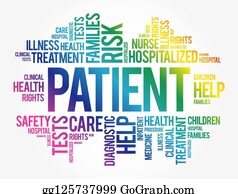Hepatitis C Surveillance

Hepatitis C is a liver infection caused by the hepatitis C virus (HCV). An estimated 2.4 million people in the United States were living with hepatitis C during 2013-2016. HCV is spread when blood from a person infected with the virus enters the body of someone who is not infected. Today, most people become infected with HCV by sharing needles or other equipment used to prepare and inject drugs. For some persons hepatitis C is an acute, short-term illness. However, more than half of people infected with HCV develop chronic illness that can lead to serious adverse health outcomes including cirrhosis, liver cancer, and death. Over 90% of people infected with HCV can be cured with 8-12 weeks of oral therapy. The Centers for Disease Control and Prevention (CDC) recommends universal hepatitis C screening for all adults and all pregnant women during every pregnancy.
Current Surveillance Practices
On May 1, 2002, Northern Nevada Public Health (NNPH) Communicable Disease (CD) Program began conducting surveillance for hepatitis C virus (HCV) in Washoe County. The objectives of this surveillance are:
- Identify new cases
- Estimate disease burden
- Characterize risk factors of infected patients
- Identify infected person who can be counseled and referred for medical follow-up or immunization
- Provide healthcare providers and the public with local data to support hepatitis C testing, treatment, and prevention services
Northern Nevada Public Health (NNPH) investigates all reports of acute hepatitis C. Cases are interviewed by a member of the Epidemiology Program to learn their signs and symptoms, identify potential sources of exposure, identify contacts and refer them for testing, and provide recommendations for disease prevention and control. Due to resource constraints, cases of chronic hepatitis C are not routinely interviewed by public health. However, NNPH maintains laboratory-based surveillance for all reports of HCV, both acute and chronic. These data are made available each year in NNHP's Annual Communicable Disease Report.
Disease Reporting
Hepatitis C virus (HCV) has been a reportable condition in Nevada since 1992 per Nevada Administrative Code NAC 441A. Nevada healthcare providers and laboratories are required to report all HCV infections (both acute and chronic) to their local health jurisdiction. Providers in Washoe County can report HCV infections to Northern Nevada Public Health (NNPH) using the Nevada Communicable Disease Report Form.
HCV Data and Reports
- NNPH's Annual Communicable Disease Report
- Recent HCV Editions of Northern Nevada Public Health’s Epi News
- United States Viral Hepatitis Surveillance
Provider Guidance and Resources
- HCV Testing Guidance
- Updated Operational Guidance for Implementing CDC’s Recommendations on Testing for Hepatitis C Virus Infection
- CDC Testing Recommendations for Hepatitis C Virus Infection (Summary)
- CDC Recommendations for Hepatitis C Screening Among Adults - United States, 2020 (MMWR Report)
- Recommended Testing Sequence for Identifying Current Hepatitis C Virus Infection
- Testing and Clinical Management of Health Care Personnel Potentially Exposed to Hepatitis C Virus - CDC Guidance, United States, 2020 (MMWR Report)
- HCV Treatment Guidance
- HCV Guidance: Recommendations for Testing, Managing, and Treating Hepatitis C - Infectious Diseases Society of America (IDSA) and American Association for the Study of Liver Diseases (AASLD), in collaboration with the International Antiviral Society–USA (IAS–USA).
- CDC's Professional Resources Webpage (includes testing algorithms, fact sheets, and hepatitis serology training)
Patient Education Materials

- Hepatitis C Questions and Answers for the Public
- Hepatitis C Questions and Answers for Health Professionals
- Patient Education Fact Sheets (in English and Spanish) including
Last modified on 12/14/2023
Let’s Stay in Touch
Sign up for our newsletter

